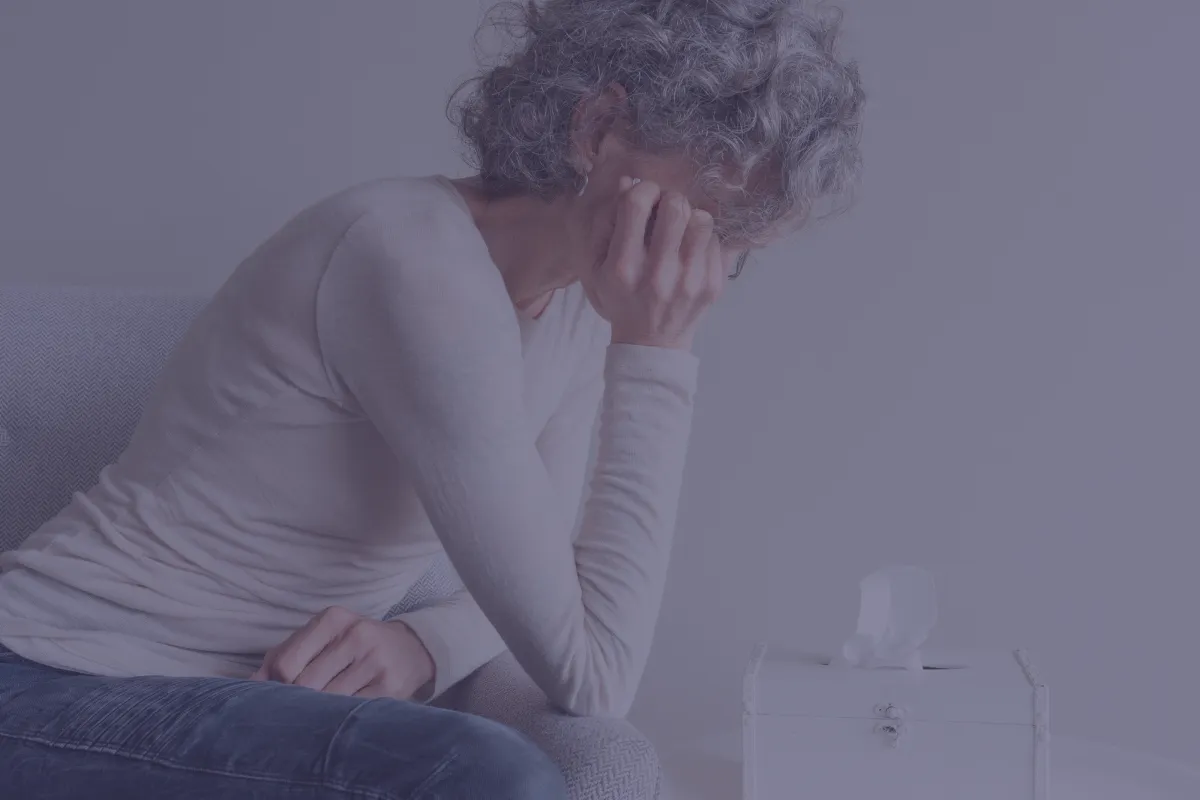Blog
BOOK A CALL
WITH US

Grief Duration: Navigating the Complex Journey of Loss
Grief is a visitor that arrives unbidden and unwelcome, bringing with it a depth of emotion that can both paralyze and transform. It's the natural response to loss – profound, personal, and as unique as the individual experiencing it. But when does the presence of grief signify an extended stay, and at what point does it start holding us back from life itself?
How Long is Too Long?
There is no stopwatch to grief, no neatly packaged time frame within which we are expected to pack away our melancholy. Grief takes "until." Until when? It's indefinite. It's a process that doesn't heed the tick-tock of a clock but rather the healing rhythm of our hearts.
Yet, there comes a point when grief can veer into a state that immobilizes us, preventing the progression of life. It's this threshold that raises the question: How long is too long?
The most common indicator that grief has overstayed its welcome is when it disrupts our ability to live fully. When the absence of a loved one eclipses our capacity to appreciate the present or look to the future, we must pause and evaluate the grip of our sorrow.
Stages of Grief
Grief doesn't march along a linear path. Rather, it ebbs and flows, sometimes washing over us with surprising intensity, other times receding to expose stretches of calm acceptance. The stages of grief—denial, anger, bargaining, depression, acceptance—are not orderly steps but overlapping waves of experience.
Denial acts as a shield, buffering the immediate shock,
Anger reflects our raw, routed emotions,
Bargaining attempts to negotiate with a reality we're reluctant to accept,
Depression sinks us into contemplation of the magnitude of our loss,
Acceptance is the quiet understanding and adjustment to our new world.
One day you may reach acceptance, but a memory, a date, or a song can plunge you back into anger or depression. It's typical, and it's human.
My own understanding of grief was etched by the loss of my grandmother in 2004. She was my world, and her passing was nothing less than a gut punch. I grieved intensely, out of loyalty and love, to the point where it began to change who I was. This prolonged grief manifested in unhealthy choices; it was a shadow altering my essence.
It took five years to acknowledge that this was not what she would've wanted for me. In the steps toward self-reconciliation, I realized that the grief had been too long, too consuming.
Coping with Prolonged Grief
Understand the stages: Recognize where you are in the grief process. Be honest with yourself, and permit the feelings associated with each stage.
Choice is empowering: Reflect on the decisions you made before the onset of grief. Give yourself the permission to continue making choices that honor you and your loved one.
Reframe loss: Not all losses are equal. Some open the door to self-discovery and growth. A lost friendship might pave the way for newfound independence and strength.
Grief need not only be through death. Life changes—jobs, relationships, personal evolutions—can all trigger the cycle of grief.
Grieving is as much an act of remembrance as it is a testament to our own capacity for resilience. It's not just about honouring those who have passed but also about honoring the life they have left behind in us.
Remember, overcoming grief is less a destination and more a voyage—a process that requires patience, acceptance, and the willingness to move forward with love and memories held tenderly in our hearts. Grief transforms over time, often becoming less about the actual loss and more about what we discover in ourselves through the process.
When grief has become a barrier rather than a bridge to the past, it's time to seek help, engage in self-care, and gently, but firmly, recapture the reins of life.
Learn more how our programs are the beginning to overcoming grief. Learn more HERE.


© 2023 Personal Best Seminars - All Rights Reserved

